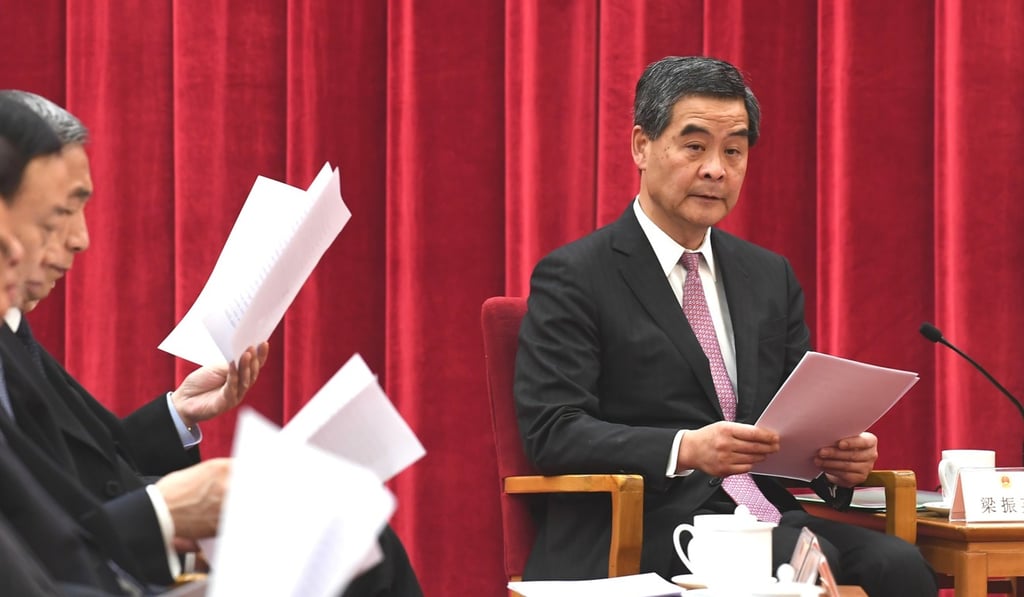State leader Zhang Dejiang declares Beijing’s power to ‘supervise’ Hong Kong civil servants’ allegiance
The central government seeks additional ways to scrutinise the city’s affairs, including instructing the chief executive and assessing legislation

Beijing has made the unprecedented move to declare its power to “supervise” Hong Kong officials based on their allegiance to the country’s sovereignty, prompting pan-democrats and civil servants to question such a standard.
“It should be stressed that [Hong Kong’s] governing teams... must be made up of patriots who respect the Chinese people, sincerely support [China’s] resumption of sovereignty and pose no threat to [Hong Kong’s] prosperity and stability,” he said, referencing late leader Deng Xiaoping.

“The central government is responsible for supervising whether [Hong Kong’s] public officers uphold the Basic Law, and whether they pledge allegiance to the country and [Hong Kong].”